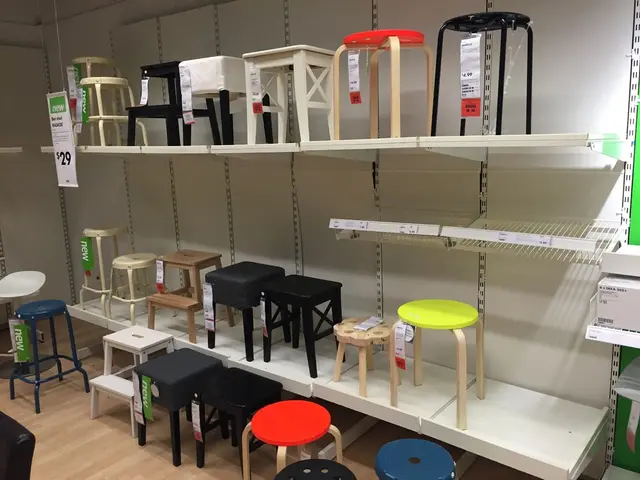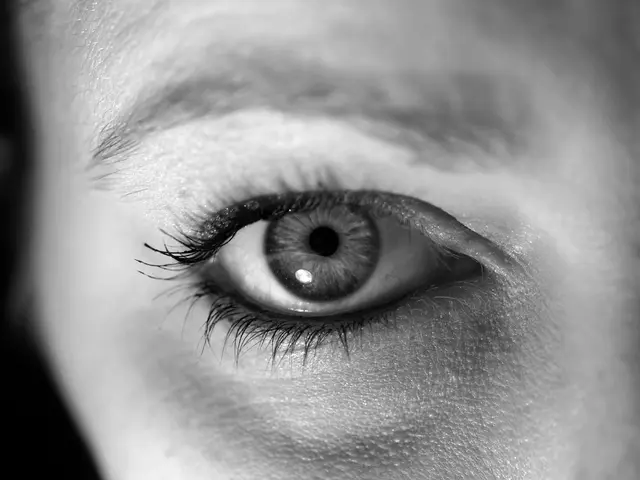Helping Hands in the ER: Aid for Dementia Patients in Emergency Rooms
Effective treatment for Dementia during emergencies can sometimes be achieved with a single intervention in the ER setting - Aiding a hand can make a significant difference - Emergency room assistance for dementia patients
Chaos and stress are routine in emergency rooms. Nurses hurry patients into the building, doctors and caregivers scurry off to the next patient. For senior folks, especially those with dementia, this can be too much - and their recovery chances might take a hit. In Göttingen, Mannheim, and Berlin, volunteer emergency room guides aim to prevent this.
The major risk is a term called delirium - a sudden state of severe confusion, which dementia patients are particularly vulnerable to. According to Bettina von Arnim, director of the Clinic for Geriatrics at the University Medical Center Göttingen, delirium can occur after surgeries and usually lasts for several days.
Keeping it real
Volunteers like Kerstin Schneider are on duty at the University Medical Center to prevent this chaos. "Their role is to keep people grounded," says von Arnim. Schneider shares, "Most just want someone to talk to. That calms them down right away." Often, just holding hands does the trick. A dementia patient, for example, stopped screaming when Schneider sat beside her.
Schneider makes a conscious effort not to wear a uniform; she just approaches people without nurses or caregivers introducing her. This way, she isn't associated with medical staff, with whom people don't always have positive associations. Like medical staff, however, the guides are also bound by confidentiality.
Growing the Team
In Göttingen, Schneider is one of two current emergency room guides. Eight more volunteers are expected to join the team soon - students and seniors. No medical training is required. Schneider herself is a trained nurse and active in other volunteer organizations. As a guide, she usually works twice a month for six to seven hours on days of her own choice.
There's always work to do. "I've never just sat around," Schneider says. If no one needs to be cared for in the emergency room or the emergency room station, she takes care of patients in the geriatric unit. For her work as a guide, she has received training on various topics such as dementia, delirium, and hygiene. However, the most important thing is to approach the affected people with an open mind.
A Winning Combination
The University Medical Center in Göttingen is a fan of the project - even if not everyone was at first. The nursing staff in the emergency room were initially skeptical, fearing even more people standing in the narrow corridors, says Geriatrics Director von Arnim. "Now, the colleagues are happy when we come because we take work off their hands," Schneider says.
Since September, the guides have been on duty in Göttingen. Around 30 to 50 affected people have been cared for since then. However, the potential is much greater, says the medical director of the Central Emergency Room at UMG, Sabine Blaschke. According to statistics, five to ten percent of people in emergency rooms are affected by dementia or delirium - and this trend is on the rise.
The option is also possible at other German hospitals.
Building on the 2019 Charité Pilot
The ongoing project is an extension of an initial pilot project conducted at Berlin's Charité in 2019. Its aim is to boost the recovery chances. Individuals who experience delirium have a significantly higher risk of mortality. Regular feedback sessions using questionnaires are held with navigators and nursing staff to evaluate the project, explains Blaschke. Minor improvements have been made, such as a bag filled with books and games to keep patients and navigators engaged.
Plans are already underway to continue the current test phase beyond 2025 in Göttingen. The project has also received positive feedback at the Charité, with plans to continue it. Schneider, the volunteer guide, even hopes, "Perhaps similar offers will be available nationwide soon." However, this is not currently covered by health insurance providers.
- Recovery Chance
- Emergency Room
- Göttingen
- Kerstin Schneider
- Hectic
- Mannheim
- Berlin
- Patient Support
- Dementia
- Delirium
Insight: Implementing strategies like conversational engagement, use of familiar items, multidisciplinary teams, regular routines, delirium prevention measures, access to visual and hearing aids, fall prevention, social support, and mentally stimulating activities can help create a supportive environment for dementia patients in emergency rooms, potentially improving their recovery outcomes by addressing their unique needs and reducing complications such as delirium.
- The volunteer emergency room guides in Göttingen, Mannheim, and Berlin aim to improve the recovery chances of dementia patients by providing health-and-wellness support and mental-health assistance, such as conversational engagement, use of familiar items, and calming techniques.
- In Göttingen, Kerstin Schneider, one of the emergency room guides, emphasizes the importance of a community policy that allows guides to interact openly with patients without being associated with medical staff, fostering a more comfortable and supportive environment for patients with dementia and delirium.








